How To Play Soccer Like A Pro – Complete Guide (2025)
If you’re wondering how to play soccer like a pro – this is for you.
Whether you want to become a professional soccer player or just learn how to play like one, I’ve created this article to help you understand what it takes to play at a top level.
To play soccer like a pro requires more than just natural talent—it demands dedication, discipline, and a strategic approach to training and development.
In this article, we’ll explore the essential steps and key differences between amateur and professional soccer players, providing action steps to help you elevate your game and pursue your dreams of playing soccer at the highest level.

How To Play Soccer Like A Pro
In this article, you can read through all 5 sections or skip ahead to the topics that are most important to you. Make sure to stick around until the end, watch the video tutorial, and get your special free gift that is guaranteed to make you a better player.
- How to play soccer better
- How to be a pro at soccer
- How to play soccer professionally
- What the difference between amateurs from pro soccer players
- How to become a better soccer player, improve faster & achieve more
I hope this article gives you all you need about how to play soccer like a pro – Let’s get started!

How To Play Soccer Better
Ready to take your soccer game to the next level? Let’s dive into some actionable steps you can start implementing today to become a better player. Remember, improvement doesn’t happen overnight, but with consistent effort and the right mindset, you’ll see progress in no time.
1. Master the Basics
- Dribbling: Keep the ball close to your feet. Practice with both your strong and weak foot.
- Passing: Work on accuracy and timing. Use both short passes and long balls.
- Shooting: Focus on your technique, not just power. Aim for precision and practice different types of shots.
2. Improve Your Fitness
- Endurance: Incorporate long-distance running and interval training. Soccer is a game of sprints and endurance.
- Speed: Work on your acceleration with sprints and agility drills.
- Strength: Build core and leg strength with exercises like squats, lunges, and planks.
3. Enhance Your Tactical Understanding
- Watch Games: Study professional matches. Observe player positions, movements, and strategies.
- Learn Formations: Understand different formations and your role within them.
- Communication: Develop strong verbal and non-verbal communication skills with your teammates.
4. Boost Your Mental Game
- Confidence: Believe in your abilities. Visualize success and positive outcomes.
- Focus: Stay concentrated during training and matches. Block out distractions.
- Resilience: Learn from mistakes and setbacks. Use them as opportunities to grow.
5. Practice Smart
- Quality Over Quantity: Focus on the quality of your practice sessions. It’s better to have a short, intense practice than a long, unfocused one.
- Set Goals: Have clear, measurable goals for each session. Whether it’s improving your weak foot or increasing your sprint speed, having a target keeps you motivated.
- Review and Reflect: After each practice or game, reflect on what went well and what needs improvement. This will help you make consistent progress.
6. Nutrition and Recovery
- Eat Right: Fuel your body with a balanced diet rich in protein, carbohydrates, and healthy fats. Stay hydrated.
- Rest: Get plenty of sleep and allow time for your body to recover. This is when muscles repair and grow stronger.
- Stretch: Incorporate stretching and flexibility exercises to prevent injuries and improve your range of motion.
7. Get Feedback
- Coaches: Listen to your coach’s advice and apply it.
- Teammates: Don’t hesitate to ask for feedback from your teammates. They can offer valuable insights.
- Self-Assessment: Record your games and practices when possible. Reviewing your performance can highlight areas for improvement.
8. Stay Consistent and Persistent
- Improvement is a journey. Stay consistent with your training and persistent in your efforts. Keep pushing your limits and never settle for less.
Remember, every great player started somewhere. What sets them apart is their dedication and willingness to put in the work. Apply these tips, stay focused, and watch yourself transform into the player you aspire to be. Let’s get out there and make it happen!

How To Be A Pro At Soccer
If you’re aiming to be one of the best on your team and take your skills to a professional level, you’ll need to push yourself beyond the basics and dive into more advanced techniques and strategies. Here’s how you can elevate your game:
1. Technical Mastery
- Advanced Dribbling: Practice dribbling at high speeds, changing directions quickly, and mastering moves like the step-over, nutmeg, and Cruyff turn. Always keep your head up to scan the field.
- Precision Passing: Work on one-touch passes, through balls, and long diagonal switches. Practice with both feet to become unpredictable.
- Clinical Finishing: Sharpen your finishing skills. Practice volleys, headers, and shooting under pressure. Aim for different parts of the goal and work on finishing with both feet.
2. Superior Fitness
- Explosive Power: Incorporate plyometric exercises like box jumps, burpees, and sprint drills to increase your explosive power.
- Stamina Building: Mix high-intensity interval training (HIIT) with longer endurance runs. Soccer requires bursts of speed followed by recovery, so mimic this in your training.
- Functional Strength: Focus on compound exercises like deadlifts, squats, and bench presses. These will build strength that translates directly to your performance on the field.
3. Tactical Intelligence
- Game Analysis: Study full matches and break down the play-by-play actions of players in your position. Note their movement, decisions, and positioning.
- Spatial Awareness: Improve your awareness by playing small-sided games where space is limited. This will enhance your ability to operate in tight areas.
- Anticipation: Work on reading the game better. Anticipate where the ball will go next and position yourself accordingly.
4. Mental Fortitude
- Game Preparation: Develop a pre-game routine that includes visualization, positive affirmations, and relaxation techniques. Mental readiness is crucial.
- Pressure Handling: Simulate high-pressure situations in practice to get comfortable performing under stress. Practice taking penalty kicks, free kicks, and making critical plays in the final minutes.
- Leadership: Be vocal on the field. Encourage your teammates, organize the defense, and lead by example with your work rate and attitude.
5. Advanced Practice Techniques
- Position-Specific Training: Tailor your training to the specific demands of your position. For example, if you’re a midfielder, focus on vision, passing accuracy, and stamina. If you’re a defender, work on tackling, positioning, and aerial duels.
- Skill Combination Drills: Combine multiple skills in one drill. For example, dribble through cones, pass against a wall, and then take a shot on goal. This simulates real game scenarios.
- Intense Scrimmages: Regularly play against stronger opponents. This will push you to adapt, think quicker, and improve faster.
6. Optimal Recovery and Injury Prevention
- Recovery Protocols: Use ice baths, foam rollers, and stretching routines to aid recovery. Consider yoga or Pilates to improve flexibility and core strength.
- Injury Prevention: Strengthen areas prone to injury, such as ankles, knees, and hips, with specific exercises. Always warm up thoroughly and cool down properly after training and games.
- Professional Support: Work with a physiotherapist or sports scientist to create a personalized injury prevention and recovery plan.
7. Professional Attitude and Lifestyle
- Discipline: Stay disciplined with your training, nutrition, and recovery. Avoid habits that can negatively impact your performance, such as poor sleep or junk food.
- Consistency: Commit to a consistent training schedule. Make every practice count, even on days when you don’t feel like it.
- Networking: Connect with coaches, scouts, and other players. Attend camps, tryouts, and showcases to get noticed.
8. Seek Continuous Improvement
- Feedback Loop: Regularly seek feedback from coaches and teammates. Use it constructively to improve.
- Stay Updated: Keep up with the latest soccer trends, techniques, and training methods. Adapt and integrate useful practices into your routine.
- Set Higher Goals: Always set new, challenging goals once you achieve the current ones. Aim to constantly improve and never become complacent.
Becoming a top player on your team and aspiring to go pro requires relentless effort, a strategic approach, and a dedication to continuous improvement. Embrace the journey, push your limits, and keep striving for excellence. You’ve got what it takes – now, go out there and prove it!

How To Play Soccer Professionally
Playing soccer professionally requires a series of strategic actions. Here’s a focused list of the essential steps you need to take to achieve your goal:
1. Get Noticed
- Create a Highlight Reel: Compile footage of your best performances, showcasing your skills, versatility, and athleticism. Ensure it’s professionally edited and easily shareable.
- Build a Strong Online Presence: Use social media platforms like YouTube, Instagram, and Twitter to post your highlights, training routines, and achievements. Engage with your followers and connect with scouts and coaches.
2. Attend Showcases and Combines
- Soccer Showcases: Participate in regional and national soccer showcases where scouts from various clubs are present. These events provide a platform to display your talent.
- Combines: Sign up for combines, which are tryouts where players perform various drills and play scrimmage games in front of scouts and coaches. These are often organized by leagues or clubs.
3. Seek Professional Training
- Join an Elite Club: Play for a competitive club team that regularly competes in high-level tournaments. Clubs with a reputation for developing professional players often have connections with scouts.
- Soccer Academies: Enroll in a reputable soccer academy that offers intensive training and has a track record of placing players in professional teams.
4. Engage an Agent
- Find a Certified Agent: Research and connect with licensed agents who have experience in the professional soccer industry. A good agent can help you navigate contracts, trials, and negotiations.
- Network: Attend soccer events and network with coaches, players, and agents. Personal connections can lead to valuable opportunities.
5. Participate in Open Tryouts
- Club Tryouts: Many professional clubs hold open tryouts. Keep an eye on club websites and social media for announcements and register for these opportunities.
- MLS Tryouts: If you’re in the U.S., Major League Soccer clubs sometimes hold open tryouts. Research and apply to these as they arise.
6. Play in Lower Leagues
- Semi-Pro and Amateur Leagues: Gain experience by playing in semi-professional or top amateur leagues. Success in these leagues can lead to professional opportunities.
- Overseas Leagues: Consider playing in lower-tier leagues abroad where you can develop your skills and gain professional experience.
7. Leverage College Soccer (U.S. Specific)
- College Scholarships: Aim to play college soccer. Perform well at the collegiate level to attract attention from MLS scouts and other professional leagues.
- College Combines: Participate in combines and showcases organized by colleges to increase your visibility to professional scouts.
8. Stay Persistent and Positive
- Resilience: Be prepared for setbacks and rejections. Keep a positive mindset and stay persistent in pursuing your goal.
- Professional Attitude: Always maintain a professional attitude on and off the field. How you conduct yourself can influence coaches’ and scouts’ perceptions.
By following these steps and staying dedicated to your training and development, you can increase your chances of playing soccer professionally. Stay focused, work hard, and seize every opportunity that comes your way.
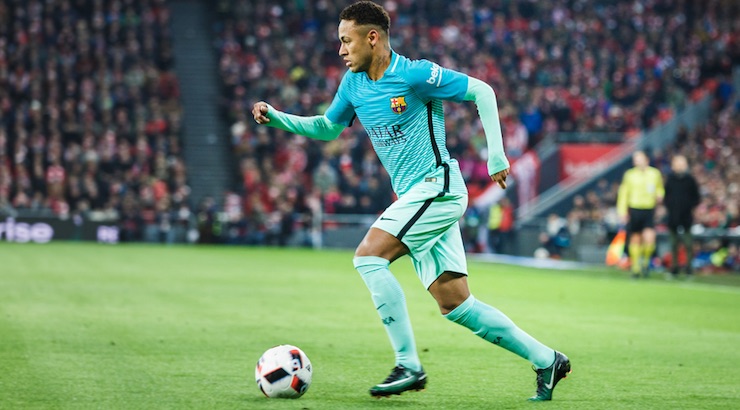
Difference Between Amateurs And Pro Soccer Players
The difference between amateur and professional soccer players extends beyond just their skill levels. It encompasses aspects such as training intensity, commitment, lifestyle, and opportunities.
Here are the key differences between amateurs and pros:
1. Skill Level and Performance
- Technical Ability: Professional players typically have superior technical skills, including ball control, passing accuracy, and finishing. They can perform these skills consistently under pressure.
- Tactical Understanding: Pros possess a deep understanding of the game’s tactics and strategies. They read the game well, make quick decisions, and adapt to different styles of play.
2. Training and Commitment
- Training Intensity: Professional players train more frequently and intensely. They often have multiple training sessions per day, focusing on various aspects like fitness, skills, tactics, and recovery.
- Commitment: Pros dedicate their lives to the sport. Their schedules revolve around training, matches, and recovery, leaving little room for other activities.
3. Physical Conditioning
- Fitness Levels: Pros are in peak physical condition. They undergo rigorous fitness regimes tailored to optimize their performance, including strength training, endurance workouts, and flexibility exercises.
- Injury Prevention and Recovery: Professional players have access to advanced medical care and recovery techniques, including physiotherapy, nutrition plans, and personalized training regimens to prevent injuries and recover quickly.
4. Mental Toughness
- Pressure Handling: Professionals excel under pressure. They are accustomed to playing in high-stakes environments and can maintain focus and composure.
- Mental Preparation: Pros invest time in mental training, including visualization, mindfulness, and psychological resilience, to enhance their performance.
5. Lifestyle and Discipline
- Professionalism: Pros maintain a disciplined lifestyle, including strict adherence to training schedules, diets, and rest. Their off-field behavior is also scrutinized, as it can impact their careers.
- Support Systems: Professional players often have support teams, including coaches, nutritionists, psychologists, and agents, to help them optimize their performance and manage their careers.
6. Experience and Competition
- Level of Competition: Pros regularly compete against top-tier opponents, which elevates their game. The high level of competition helps them continuously improve.
- Experience: Many professional players start training and competing at a high level from a young age, gaining valuable experience over time.
Understanding these differences can help aspiring players recognize what it takes to transition from amateur to professional status. It’s not just about having talent; it’s about commitment, discipline, and a relentless pursuit of excellence.
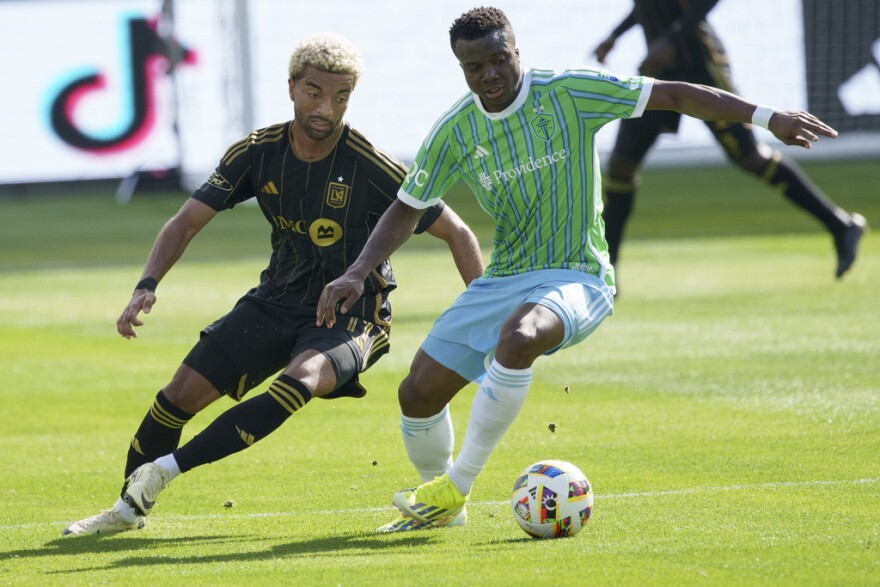
Play Soccer Like A Pro
In conclusion, playing soccer like a pro is not merely about mastering technical skills or physical fitness; it’s about embodying the mindset, commitment, and professionalism of a professional athlete.
By understanding the key differences between amateur and professional players and implementing the actionable steps outlined in this article, you can take significant strides towards realizing your goal of playing soccer at the highest level.
Remember, the path to becoming a professional soccer player is challenging, but with passion, perseverance, and unwavering determination, you can turn your dreams into reality.
So lace up your boots, hit the training pitch, and dare to chase your aspirations with the relentless spirit of a true professional.

Common Questions
Here are some common questions related to how to play soccer like a pro:
How to kick a soccer ball like a pro?
To kick a soccer ball like a pro, focus on proper technique and control. First, position your non-kicking foot about 6-8 inches away from the ball, keeping it aligned with your target. When striking the ball, use the instep (the top of the foot) for power shots or the inside of the foot for more accuracy and finesse. The key is to keep your body balanced and follow through the motion of the kick, ensuring you strike the ball cleanly, not too high or low, and at the center of your foot for consistent results. Regular practice and analyzing pro players can greatly enhance your kicking ability.
How to dribble a soccer ball like a pro?
To dribble like a pro, stay low and close to the ball, ensuring good balance. Use small touches with the inside, outside, and sole of your foot to maneuver the ball. Pro players are constantly shifting their weight to change directions quickly, making dribbling look smooth and effortless. Developing quick feet, body feints, and clever changes of pace will also help. The best pros combine creativity with ball control and spatial awareness, using both technique and sharp decision-making during dribbling.
How do you become a pro in soccer?
Becoming a pro soccer player involves consistent training, dedication, and developing both your physical and mental strength. From a young age, honing your skills in various techniques, improving fitness, and understanding the game is crucial. You’ll need to be resilient through setbacks and challenges, playing regularly in competitive environments, and receiving constant feedback to improve. Networking with coaches, attending trials, and maintaining a passion for the game will help create the pathway to a professional career.
Is it too late to play pro soccer?
It’s never “too late” to pursue professional soccer, but it depends on factors such as age, natural talent, and how much effort you’re willing to put into your training. While most pro players begin at a young age, adults can still pursue opportunities through semi-pro leagues, professional trials, or specific soccer academies. With the right mindset and commitment, aspiring players of any age can develop enough to play at higher levels, though the road may be more challenging than for younger players.
How to train like a pro soccer player?
Training like a pro involves focusing on a comprehensive regimen that balances physical, technical, and mental aspects of the game. In addition to on-field drills, like passing, shooting, and dribbling, professional players engage in strength and conditioning to build power and endurance. Nutrition, recovery routines (such as stretching, ice baths, and massage), and mental exercises (for focus and stress management) are all crucial parts of training. Emphasizing consistency, discipline, and continuous improvement in every aspect of the sport will set you on a professional mindset.
How rare is it to become a pro soccer player?
Becoming a pro soccer player is extremely rare. Statistically, fewer than 1% of soccer players make it to professional levels, largely due to the intense competition, talent requirements, and consistent development required. While most players start young and undergo years of rigorous training, success comes down to a mix of skill, opportunity, and persistence. Every year, thousands of youth players are vying for a chance at turning professional, making it a challenging but still possible dream for those who have a true commitment to the game.
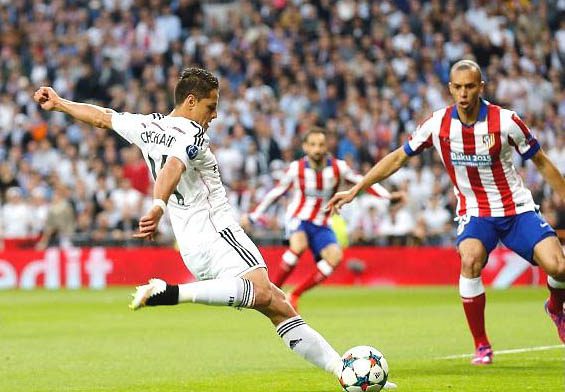
SOCCER PLAYERS
Want to become a better soccer player?
Watch this 3-minute video about discovering your true potential
Learn how to improve your skills, mindset, soccer IQ, and fitness—no matter your level. Start playing with confidence, earning respect, and impressing coaches today.
About Coach Dylan
I used to struggle with confidence in soccer, feeling slow, weak, and unmotivated. Coaches overlooked me, and friends made fun of my skills. At one point, I even quit.
But I decided to take control of my development. Through hard work, I transformed my game, earned league titles, awards, a college scholarship, and international caps.
Now, I share my lessons and help others improve through my YouTube channel (1/2 million subscribers), soccer coaching and personal training.
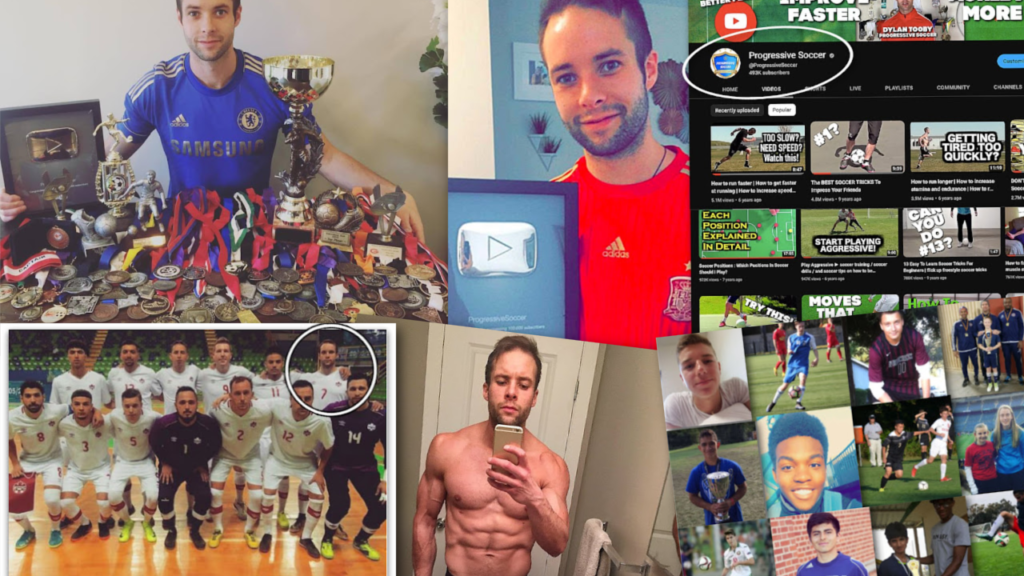
How To Play Soccer Better
Struggling to make progress in soccer or stay organized with your training?
The Soccer Success Planner will help you stay focused, motivated, and increase your chances of achieving your goals in soccer.
Success doesn’t happen accidentally. Use it to set clear goals, create a plan of action, and take control of your future. Learn more about the Soccer Success Planner.
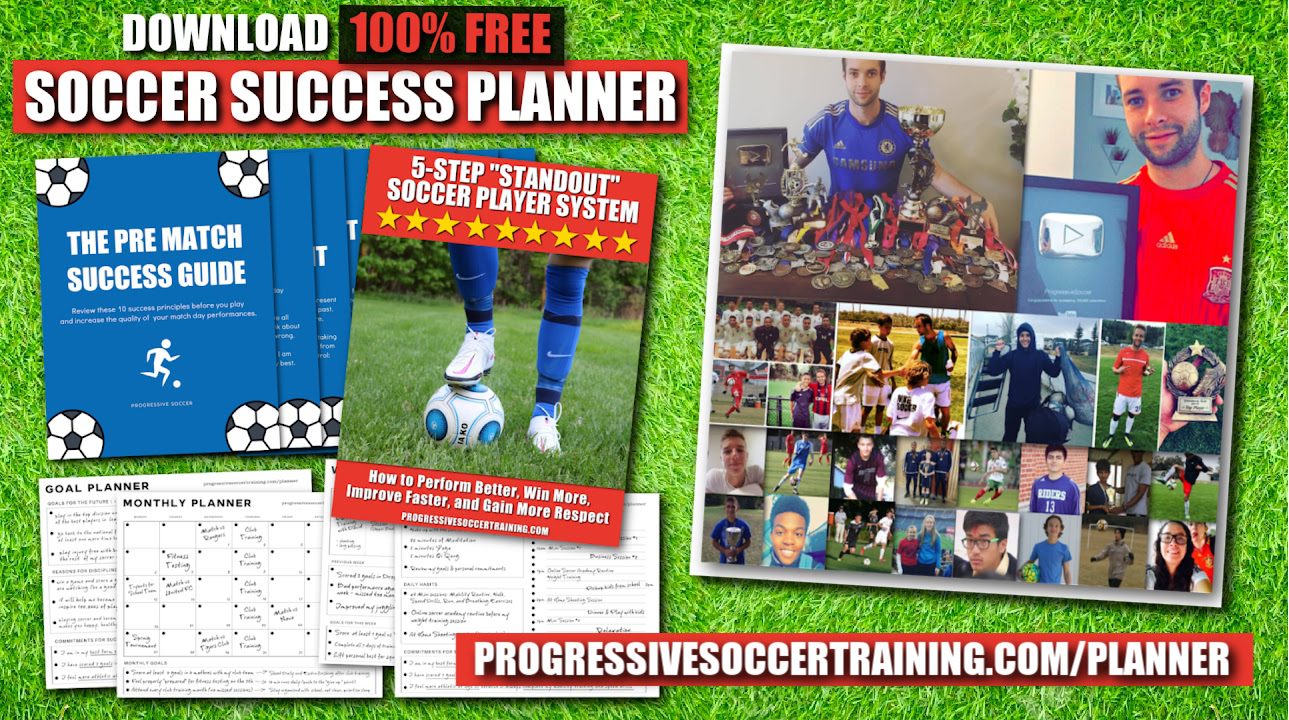
How To Become A Better Soccer Player
Struggling to improve in soccer or unsure how to train effectively? Want to stand out and earn respect from teammates and coaches?
The Online Soccer Academy will get you better results in less time.
Thousands of players have already transformed their game in just 60 days. Learn more about how the online soccer academy.

Related Posts
Here are some related posts to help you gain more knowledge and helpful advice:
How To Become A Better Soccer Player in 1 Day
From Failure To Top Goal Scorer
Coach Dylan
Progressive Soccer
Thank you for reading this article:
How To Play Soccer Like A Pro – Complete Guide (2025)
